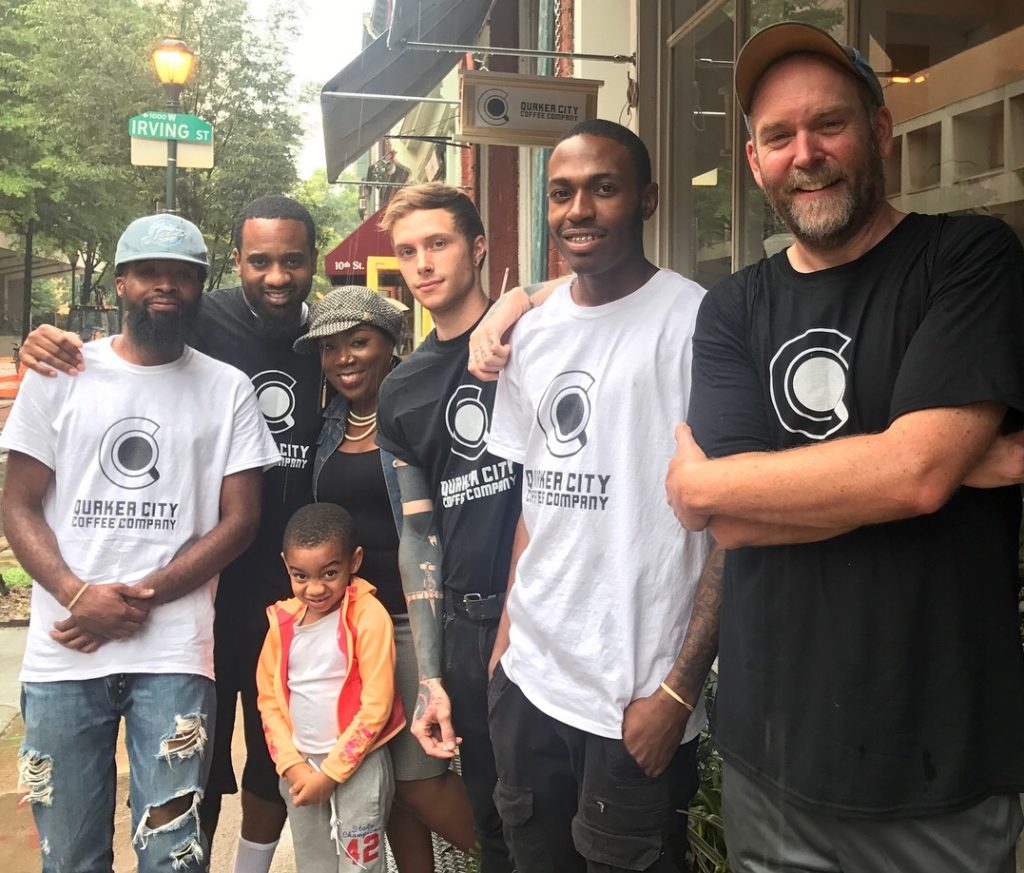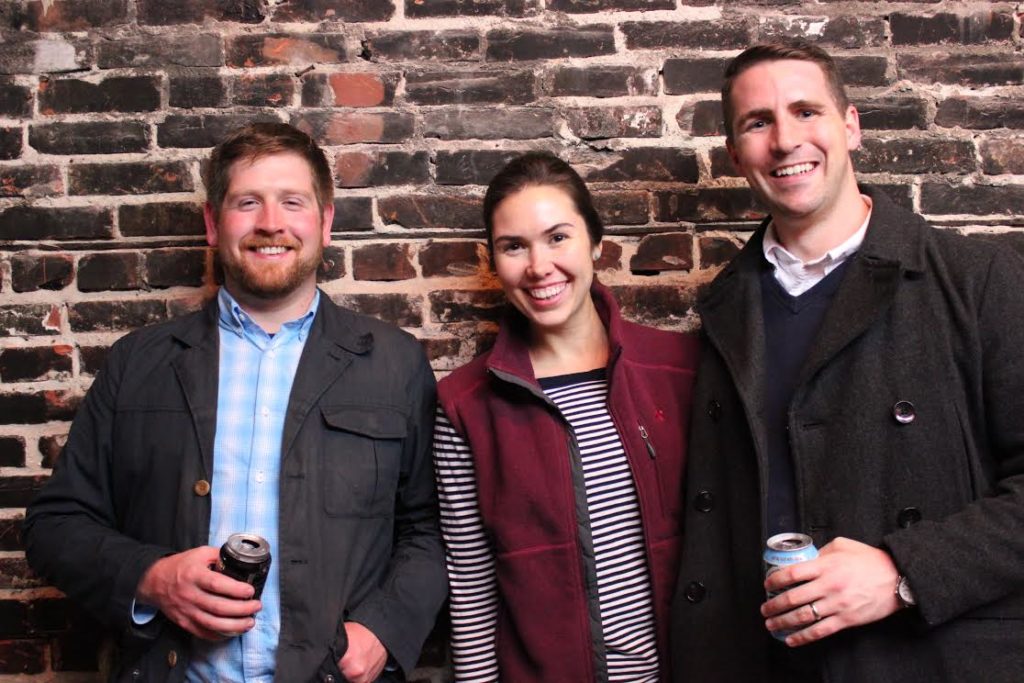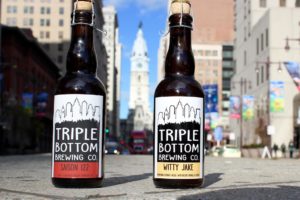The case for doing well by doing good: Hiring returning citizens is good for business
 June 11, 2019
Category: Featured, Long, Purpose
June 11, 2019
Category: Featured, Long, Purpose
Disclosures
This is a guest post by Bradford Bucknum, the communications manager for the Sustainable Business Network of Greater Philadelphia. Correction: In the fifth paragraph, the phrase "people with criminal records" has been changed to "returning citizens." (6/11/19, 11:07 a.m.)Many businesses are ignoring a huge opportunity to recruit from a talent pool that, to a great extent, goes unnoticed. Overlooking these workers could hurt their bottom line and customer relationships.
These workers? Returning citizens. I am intentionally using this language instead of “ex-convict” or formerly incarcerated people because they are loaded terms “that categorize a human beings’ identity in past illegal activity for which they have already been punished.”
And for businesses to not miss out on talent, they must shift not just language but their perspective on inclusive hiring.
This requires a change of the heart (“the impact case”) and a change of the head (“the business case”).
In the business as a force for good movement, I’ve learned that the former is a great starting point, but it is commonly the latter that moves the needle. And even though this movement is working to dismantle the binary of what is good for business and what is good for communities, the business case speaks volumes. In this case, there is great news: inclusive hiring, specifically hiring returning citizens, is good for business.
Fair Chance Hiring can refer to many things: “ban the box” initiatives, Clean Slate legislation, tax incentives for businesses (like the one Philadelphia offers), background checking systems improvements, anti-discrimination policy reform, and businesses self-identifying as inclusive places of employment for people with criminal records.
You can join the debate about “ban the box” and its unintended consequences, but that conversation is focused on the “how” whereas I think there is still a need to address the “why.”
Studies by the ACLU and the National Employment Law Project (NERP) show that Fair Chance hiring benefits the economy (our GDP suffers billions because people with records don’t have access to work), communities (employment dramatically reduces recidivism), and businesses (decreases turnover rates and recruitment costs and improves customer service and employee loyalty). The research also reminds us that people are not their records and “a conviction in one’s past shouldn’t be a life sentence to joblessness.”
So, where can a business start if they want to participate in fair chance hiring?
Kimberly McGlonn, CEO and founder of sustainable and ethical apparel brand Grant Blvd, who designed her business to train and hire women returning from incarceration, urges businesses to strive to first understand the problem, “If you don’t want to replicate systems of exploitation, then you should dedicate some time to understanding the obstacles that black and brown people have had to endure and are still enduring. And then, once you have some developed understanding, commit yourself to sit in service with the community you want to show up for.”
McGlonn is a panelist at an upcoming event about Fair Chance Hiring hosted by the Sustainable Business Network of Greater Philadelphia on June 20. Bob Logue of Quaker City Coffee will also sit on the panel. Quaker City Coffee, a profit-sharing coffee business, not only hires returning citizens but was started by a returning citizen, cofounder Christian Dennis.
Both of these businesses built their inclusive culture into the DNA of their business from day one, and while it is possible for businesses at any stage to participate in inclusive hiring, there is a strong case for cultivating culture and ethos into a business from the beginning.
Tess Hart, cofounder of Philly beer scene newcomer Triple Bottom Brewing, which is opening its doors at the end of July, said, “This business has always been bigger than beer for me and I would not have been content if we hadn’t thought about diversity and inclusion from the very beginning. The beginning is where you are building your culture, establishing your systems, and designing your physical space. You have the opportunity to make these elements of your business both trauma-informed and community-informed”
Triple Bottom Brewing creates opportunities for people from diverse backgrounds and experiences to get a well-paying job that they may otherwise have been excluded from due to many barriers — such as having a record or dealing with housing insecurity.
Hart and her team identified barriers for employees’ success and designed solutions into their business. Dirty work-clothes shouldn’t keep someone from showing up for work, so they put a washer and dryer in their break room. They also offer a shower, access to computers and financial counseling to all employees — not just employees who have experience in the justice system or with homelessness. Triple Bottom Brewing has built their business this way because they understand the impact case (people should be given opportunities), but they are also aware that they can do well by doing good.
“There are tremendously talented people in Philadelphia who are not given opportunities to work because of adverse past experiences and that is a big waste for businesses and customers in the city because they are missing out on talent,” Hart said. “Businesses are also missing out on a broader customer base by not representing the diversity of Philly, both in who we hire and who feels welcome to visit.”
Hart knows that they could not have built this business alone. “One of the greatest joys of this process has been meeting so many brilliant, devoted people and organizations in Philadelphia who care deeply about creating opportunities for people,” she said.
This is a common theme.
When asked what advice he would give to a company who wants to create a company centered on job creation for returning citizens, Quaker City Coffee’s Logue said, “Collaborate with us and the countless folks around us who see the big picture. I’ll introduce you, sit with you, share our experiences. Any organization or company wanting to do this should be part of a collective of companies doing the same things.
“We need to learn from each other.”
Trending News












